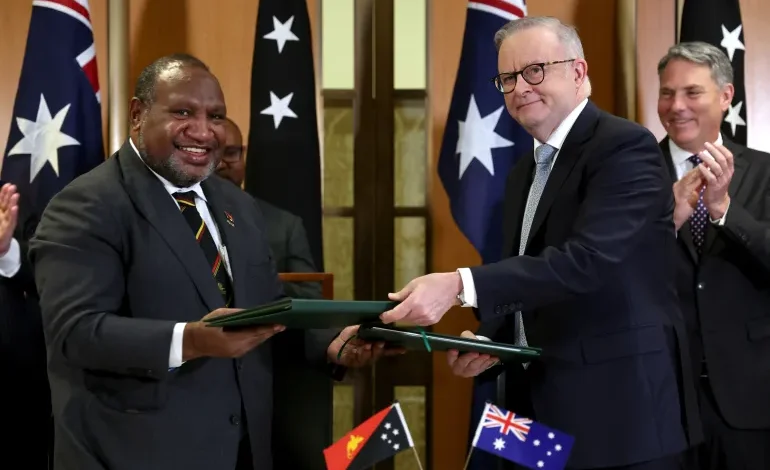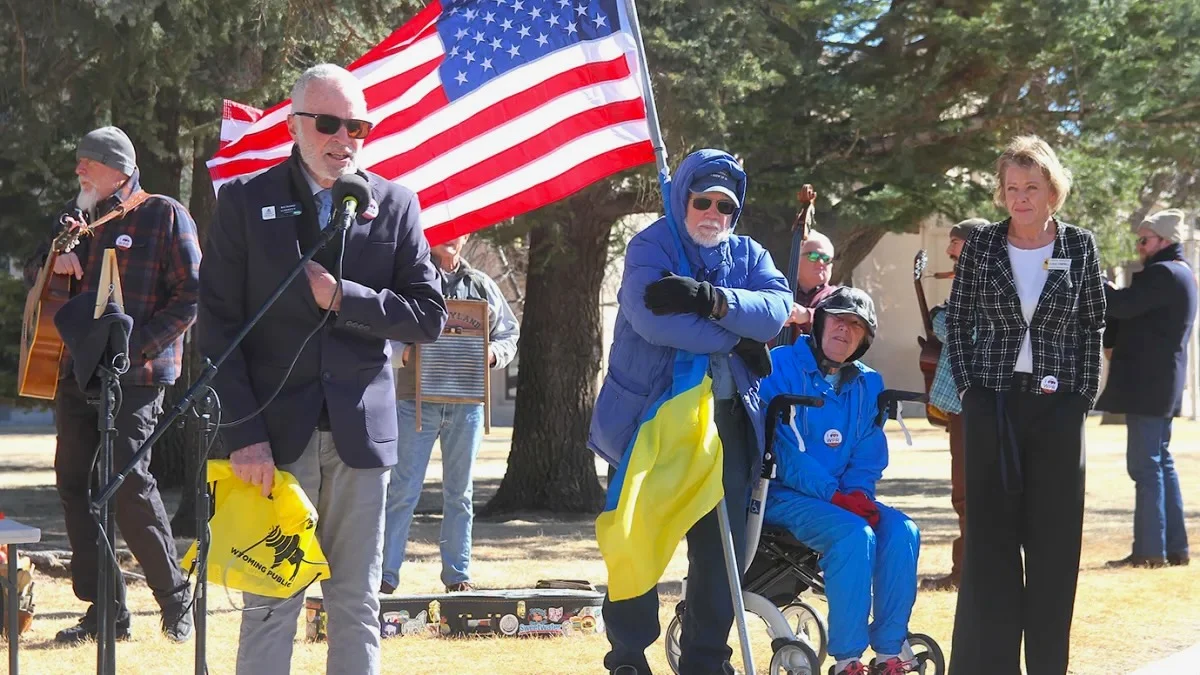Australia, Papua New Guinea Sign Landmark Defence Treaty Amid Regional Power Shifts

Australia and Papua New Guinea (PNG) have signed a long-awaited mutual defence treaty in Canberra, with both leaders describing the pact as a natural extension of geography, history, and friendship, not a reaction to global power rivalries.
Prime Ministers Anthony Albanese and James Marape announced the signing on Monday, saying the text of the treaty, nicknamed the Pukpuk Treaty, would be made public soon.
“It is about one bigger fence that secures two houses that has its own yard space,” Marape said at a joint press conference, emphasising that the agreement reflects shared regional responsibility rather than outside pressure.
Rejecting suggestions that the deal was driven by strategic competition between China and the United States in the Pacific, Marape added:
“This treaty was not conceived out of geopolitics or any other reason. We maintain friendships to all enemies, we advocate peace wherever we engage, in as far as foreign relations concern.”
Albanese described the deal as a milestone for defence cooperation.
“The treaty makes very explicit that there will be interoperability between our defence assets,” he said. “Our greatest asset is our people.”
According to the Australian Broadcasting Corporation (ABC), the agreement allows for deeper military cooperation similar to what exists within the Five Eyes alliance — the intelligence-sharing partnership linking Australia, New Zealand, Canada, the United Kingdom, and the United States.
Marape’s office said the treaty also opens a pathway for up to 10,000 Papua New Guineans to serve in the Australian Defence Force, while PNG works to expand its own military to 7,000 troops.
Papua New Guinea, with a population of about 12 million, roughly 40 percent of whom live below the poverty line, remains one of Australia’s closest but most unequal neighbours. The two nations share long-standing ties dating back to Australia’s administration of PNG as a colony from 1902 until independence in 1975.
The signing follows a series of diplomatic moves by Canberra aimed at strengthening its Pacific partnerships. Australia is negotiating a similar security pact with Fiji and recently concluded a “climate and mobility” treaty with Tuvalu, the world’s first agreement granting visas to people displaced by climate change.
Meanwhile, climate remains a top regional concern. Canberra has pledged to co-host the 2026 UN Climate Change Conference (COP31) with Pacific nations, although Turkiye is also competing to host the event.
The new treaty signals that Australia’s Pacific policy is expanding beyond aid and diplomacy, embedding defence, climate cooperation, and shared security into one framework that binds its neighbours closer than ever before.









The latest news in your social feeds
Subscribe to our social media platforms to stay tuned